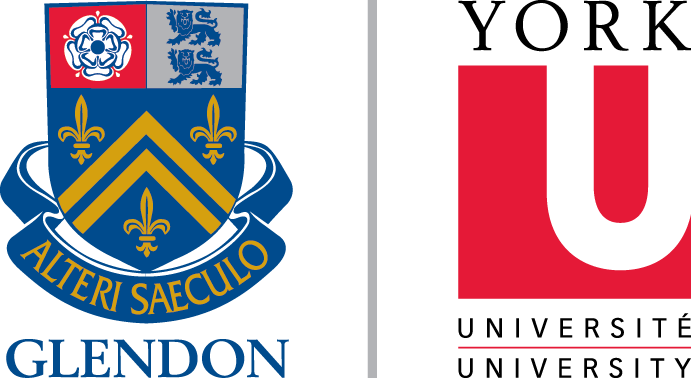 In 2012, Clayton Ruby was ranked among the 50 most influential people in Toronto. Specializing in criminal law and human rights, he is currently one of Canada’s most famous lawyers. It is often said of Ruby, a Glendon graduate (B.A. 1963), that, although he may not be the “winningest” lawyer, he probably gets the most media ink in Toronto and beyond.
In 2012, Clayton Ruby was ranked among the 50 most influential people in Toronto. Specializing in criminal law and human rights, he is currently one of Canada’s most famous lawyers. It is often said of Ruby, a Glendon graduate (B.A. 1963), that, although he may not be the “winningest” lawyer, he probably gets the most media ink in Toronto and beyond.
Indeed, since beginning his law practice, the cases taken on by Ruby have included – to name only a few – the Church of Scientology, Donald Marshall (who was imprisoned for 11 years for a murder he did not commit), star chef Michael Stadtländer (charged with selling wine without a licence) and the sole surviving Dionne quintuplet. He has been a partner with the Toronto law firm of Ruby & Edwardh since 1973 and a partner with the law firm of Ruby Shiller Shan Hasan, also in Toronto, since 2008. More recently, Ruby came close to ousting Toronto Mayor Rob Ford from office in a conflict of interest case. He feels that “holding politicians to account is a matter of importance to all Canadians.” In his view, the Ford affair raises interesting legal questions about the powers of municipalities throughout the country.
A few weeks ago, Ruby met with students at the Glendon School of Public and International Affairs (GSPIA) in conjunction with the School’s weekly lecture series. He set out his vision of society and the place of advocacy within the functioning of society, and the importance of fighting to affirm and preserve our civil rights and equality.
Needless to say, he is often asked why he agreed to take on Toronto’s highest public office holder. Ruby believes that every individual must make moral choices in his or her life. “Most of these are small everyday choices, of course – not as important as the lawsuit against the Mayor. But we must always continue to make these moral choices,” he said. This renowned lawyer feels that if we are not constantly making these moral choices, we are little more than technicians, regardless of any prestigious professional labels we may wear.
Clayton Ruby claims that his inspiration was an anarchist philosopher from the 1950s, Paul Goodman, whose writings, he said, “nourished an entire generation in the 1970s, making Goodman a very significant influence.” According to Ruby, this philosopher was very successful in explaining, among other things, how authorities are able to brand people as passive and lacking initiative by simply muzzling their initiative.
In Ruby’s opinion, this can ultimately lead to a situation in which there is no more public debate or discussion to examine how we produce goods, run our schools, communicate ideas, etc. We no longer dare ask ourselves whether we are doing these things in the best and most appropriate manner. And yet, he added, human beings are supposed to be animals that are forever experimenting.
At the present time, he explained, all of us feel incapable of providing the simplest goods on our own; the result is a permanent anxiety of which we are more or less aware. Consequently, it is the State and other established institutions or organizations that make decisions for us. In turn, this situation causes people to become even more passive – largely because they have to go about solving their everyday problems. In this context, people spontaneously seek reassuring paternal figures, and, according to Ruby, “this need goes a long way in describing Mayor Ford and explains Ford’s audience. I’ll say it bluntly: such daily anxiety or unease goes well beyond the boundaries of reason.”
He summed up his other reason for agreeing to take on the Ford case in these words: “In life, you need to be able to draw the line. That’s a part of the definition of being human; it’s a part of what it means to live in a society which, in many ways, is absurd.” Ruby feels that drawing the line is a very important exercise that helps us remain human – and remaining human is something we must always preserve.
Other cases he has been involved in include the struggle for equal rights before the law. Ruby brought a legal action against a decision by the Government of British Columbia that violated Section 15 of the Charter of Rights and Freedoms on equal rights because the B.C. government licensed a school that was closed to a part of the population – in other words, a school that practised discrimination.
He was also very active in all the gay delegations of 20 years ago because, back then, discrimination was widespread and there were no lawyers representing gays. So, with some of his friends, Ruby agreed to take on a large number of these discrimination cases and together they led all the constitutional battles that were needed at the time. He is very happy that being gay is no longer considered a shameful thing today. “Nowadays,” he says, “there are gay lawyers everywhere and they have taken over the work. I’m delighted.”
Clayton Ruby is a man of principle, and he has every intention of continuing his advocacy work in civil rights and in promoting equality for all people.
By Michel Héroux


